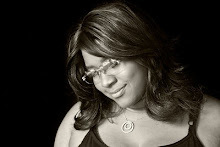I just have a little bit of time before our rehearsal today. I am at Oak Knoll Park in Clayton, which is one of the loveliest small parks that I have ever been in. It has this beautiful fountain in the middle of its pond and is surrounded by benches where one can just sit and relax. It is a beautiful day and many people have been drawn here to do just that. I see people walking dogs and just enjoying themselves. It seems that days like this one put people in better moods; every person who I have passed by has smiled and greeted me, which is a rarity in these times.
I have been thinking about “Abie Baby” and the “Lincoln” mini-monologue since the last rehearsal. I have been feeling like I haven’t really gotten the knack of it just yet. I couldn’t understand its context in the middle of the Trip, but I think I’m getting a better idea of it now. When I listen to the words “our forefathers” I already see the irony of this, because it wasn’t really all our forefathers, it was the White ones, and the real joke is that “all men are created equal” because during much of the 19th century, there were many efforts to scientifically and empirically illustrate that Blacks were not fully human and therefore not entitled to basic human rights.
I had a great conversation with Scott the other day about racism. I really feel that “Abie Baby” encapsulates the dilemma of integrating the Black person into society and illuminating the real reason why racism and segregation prevailed more than one hundred years after the abolishing of slavery. I am not sure where else in history a whole race of slaves was suddenly given freedom and (supposed) equal rights. The slave mentality persisted for Blacks even after they were freed, indeed many continued to work for their masters after they found out they were free. I cannot imagine how disorienting it was to suddenly be thrust out on one’s own, after being trained for generations that one was nothing more than property.
“Abie Baby” to me, is rage masquerading as tomfoolery. We are singing as if we are minstrels, playing to all the stereotypes, but really there is a fine undertone beneath the lyrics that says “what are you gonna do with us now? We’re not your slaves anymore, thank you Mr. Lincoln for freeing us, now what?” The parodying of Abraham Lincoln is really just putting a fine point on it. ‘Of course we are grateful, Massa Lincoln. You made us free, but we are still slaves in the eyes of this country. Thanks so much‘. This is a lot to try and get across in one song and a little bit of dialogue, but I feel like I have a better grasp on it. I know I could go on for hours about this, but I really have to stop -- I don’t want to rant and rave about it right now.
Suffice it to say that Hair has really made me think a lot about racism and how we still are struggling with the same things that our parents and grandparents struggled with then. I don’t know how much more racial understanding there is now versus then. I still get followed around in certain stores, my husband has had women clutching their purses when they walk by him. Maybe people aren’t still calling us “niggers” to our face, but there are more insidious stereotypes now more than ever. Racial profiling by the police, steering in real estate (I have actually had real estate agents ask me why would someone like me want to live in a certain area, wouldn’t I like another area better?). Tribe members, if you read this, let me know what you think about it. My views are only based on my experiences, what are yours? Let’s talk about it.
Saturday, September 6, 2008
Subscribe to:
Post Comments (Atom)


1 comment:
I was always afraid that Charles would steal my tap shoes....
Post a Comment